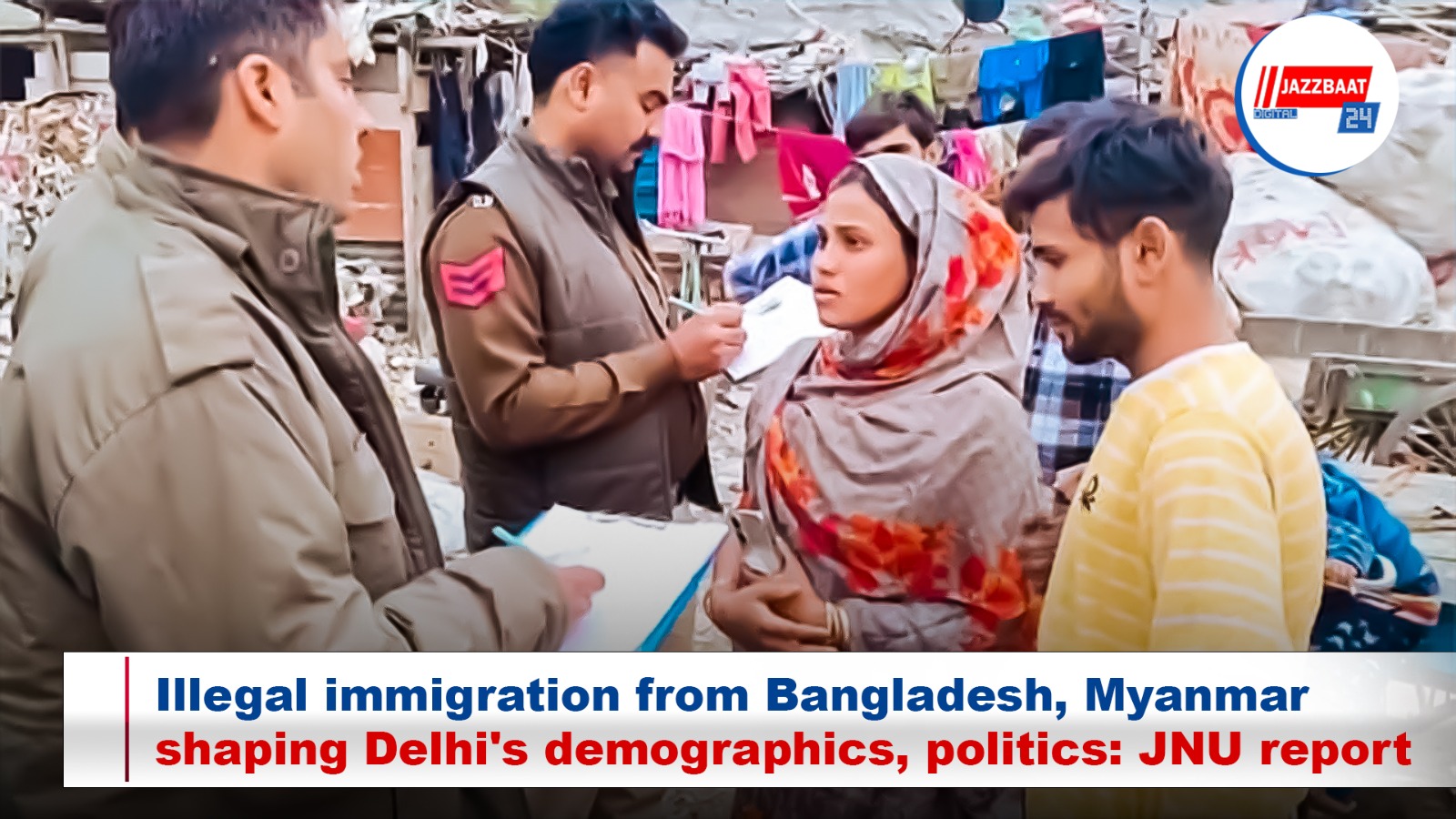A new report from Jawaharlal Nehru University (JNU) has found that illegal migration from Bangladesh and Myanmar is having a huge impact on the socio-political, economic, and demographic fabric of Delhi-NCR.
The 114-page report, titled ‘Illegal Immigrants to Delhi: Socio-economic and Political Consequences’, says political patronage is key to the continuous flow of undocumented migrants, mainly from Bangladesh and Myanmar, including the Rohingya refugees.
According to the findings, this illegal immigration has led to a “big increase in Muslim population” in the region and has changed the city’s socio-political dynamics. The report says the migrants have disrupted the city’s economy and strained resources.
In particular it highlights the competition for jobs in low wage sectors like construction and domestic work where migrant workers have driven down wages and their exclusion from the tax system puts additional burden on the legitimate workforce.
The report also mentions the severe strain on Delhi’s public infrastructure – healthcare, education, water and electricity.
Unauthorised settlements have led to overcrowded neighbourhoods and unplanned urbanisation and environmental degradation.
“Illegal immigration to Delhi has significantly altered the city’s demographic landscape, with a large influx of migrants from neighbouring countries like Bangladesh and Myanmar. These migrants often settle in overcrowded neighbourhoods such as Seelampur, Jamia Nagar, Zakir Nagar, Sultanpuri, Mustafabad, Jafrabad, Dwarka, Govindpuri, and many more, where they strain resources and disrupt local social cohesion," the report says.
These migrants are often brought in by brokers and agents who help them cross the border and provide fake documents for a price. This undermines the legal system and electoral integrity as many of these migrants get fake voter ID.
"The environmental impact of migrant settlements includes unregulated waste disposal, which contributes to pollution and public health hazards. Migrants’ involvement in informal housing markets has led to the proliferation of unsafe and unauthorised housing, posing risks to both residents and the environment," the report says.
"Illegal immigration has contributed to the proliferation of criminal networks, which exploit vulnerable migrants for activities such as smuggling and trafficking," it said.
According to the report, political patronage has played a key role in migration. "Intelligence reports suggest that local political leaders in West Bengal have provided citizenship documents to migrants, thereby creating a captive vote bank."
It also said efforts to deport illegal immigrants are delayed due to bureaucratic hurdles and lack of cooperation from migrants’ home countries and Delhi’s territorial approach.

